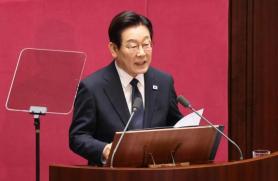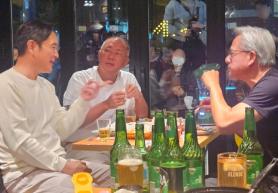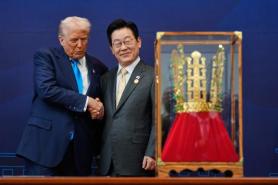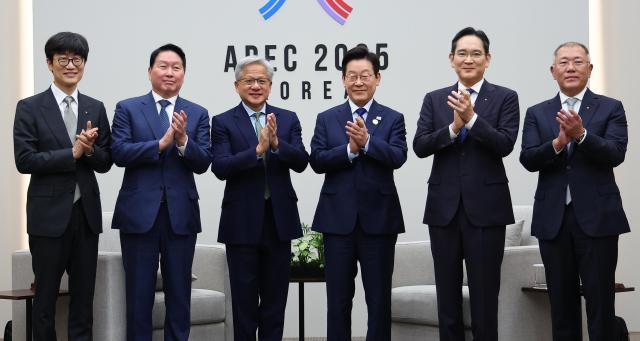
Its hosting of the APEC Summit and CEO meetings served as a global stage, pulling in top players such as OpenAI, Nvidia, Samsung Electronics, and SK hynix — collectively representing the supply chain powering the AI supercomputing era.
South Korea has lined up high-profile commitments worth more than $20 billion across AI data centers, chip supply pipelines, AI agents, and robotics-related platforms over the past two weeks alone. Of that, Nvidia's promised supply of next-generation GPUs — up to 260,000 units — represents nearly $10 billion in hardware firepower, enough to build five to six massive supercomputing centers.
During a 20-minute address at the APEC CEO Summit, Nvidia founder Jensen Huang said the reservation of Blackwell-generation GPUs for Korea reflects his "deep confidence" in the country's future in AI. "Korea has the software expertise, deep technical capability, and manufacturing capability to become a powerhouse in AI and robotics," Huang said.
Amazon Web Services CEO Matt Garman also announced plans to invest over $5 billion in Korea by 2031 to expand AI-related cloud infrastructure. He held separate talks with the chiefs of Lotte Group, GS Group and LG Electronics to discuss enterprise cloud acceleration. Korea's Ministry of Science and ICT additionally signed an MoU with the United States on cooperation in AI, next-generation communications, biotechnology, quantum science and space.
As host, South Korea secured a consensus among all 21 APEC member economies to adopt the APEC AI Initiative — the first collective AI framework proposed within the group. Member countries agreed to cooperate on safe AI transformation, with public, private and academic sectors jointly developing infrastructure and governance guidelines.
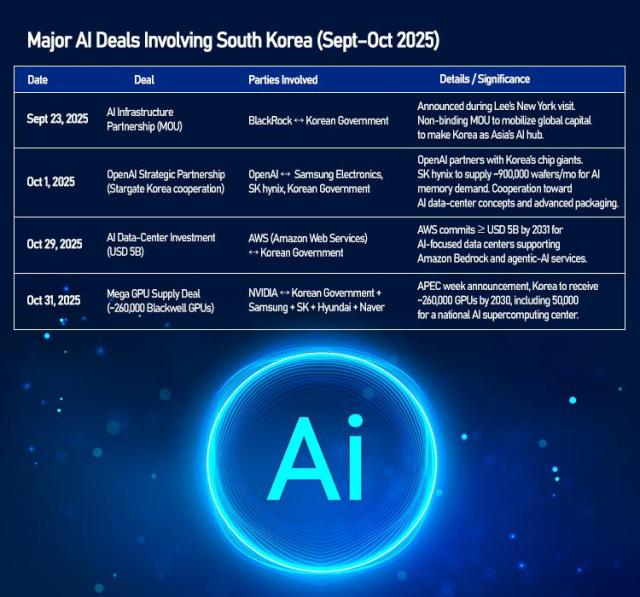
The momentum is striking given that Korea only enacted its basic AI law last year.
President Lee Jae Myung, who took office in June, has been aggressively positioning Korea at the forefront of AI governance and industrial adoption.
In his budget pitch at the National Assembly Tuesday, he called next year's spending plan "Korea's first budget for the AI era," allocating 10.1 trillion won for AI — more than triple this year's level.
Lee plans to invest 6 trillion won over five years in AI transformation across robotics, automobiles, shipbuilding, semiconductors, appliances and smart factories. The government will also expand AI use in public services, train 11,000 advanced AI specialists, and support nationwide adoption of AI skills for all citizens.
Huang's commitment of 260,000 GPUs — a dramatic increase from Korea's current stock below 100,000 — could fundamentally reshape the country's AI compute landscape.
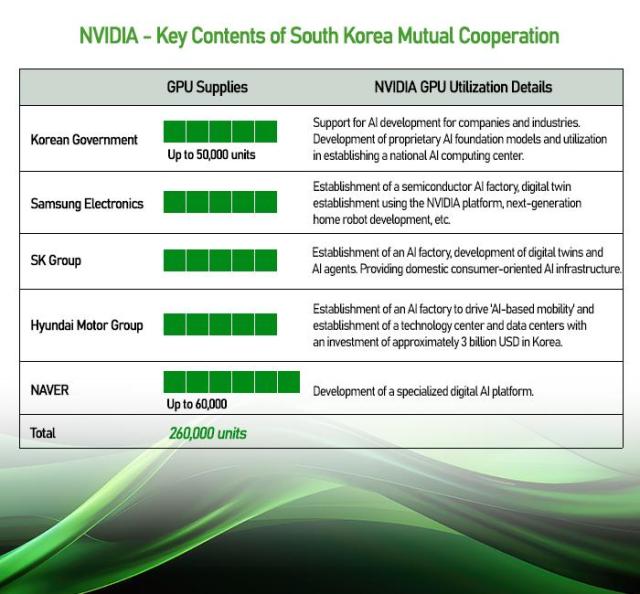
The GPU, often described as the "crude oil of the AI age," is the primary power source for model training, inference and physical AI applications.
The Nvidia supply alone, estimated at over $7 billion, gives Korean tech companies a rare opportunity to turbocharge domestic AI model development and platform competitiveness.
OpenAI echoed that sentiment in an Oct. 23 report: "With its world-class technology ecosystem, strong industrial and digital infrastructure, and globally respected talent, Korea has all the foundations to become one of the next great AI powerhouses."
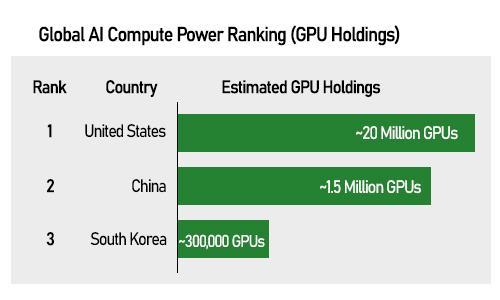
Despite the optimism, Korea's AI trajectory faces potential geopolitical headwinds.
In a CBS interview aired Nov. 2, U.S. President Donald Trump suggested he could restrict Nvidia's Blackwell chips from being exported outside the United States.
"We don't give the Blackwell chip to other people," Trump said.
The comment was directed at China, but experts warn the timing — coming just days after Nvidia's large-scale commitment to Korea — could raise uncertainty over future export rules or licensing conditions.
Copyright ⓒ Aju Press All rights reserved.


